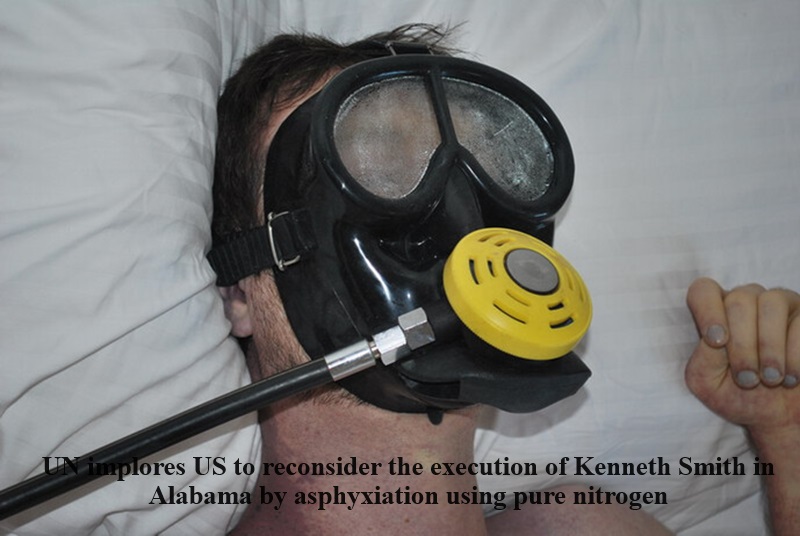
A group of United Nations experts has urgently called on U.S. authorities to reconsider the planned execution of Kenneth Smith in Alabama on January 25. The unique and untested method proposed for the execution is asphyxiation using pure nitrogen, a procedure never employed anywhere in the world. The experts have raised concerns that this untested execution method could potentially subject Smith to “cruel, inhuman or degrading treatment or even torture.”
Kenneth Smith, a 58-year-old murderer-for-hire, was sentenced to death for a 1988 killing. The planned execution involves using a face mask connected to a cylinder of nitrogen to cut off his oxygen supply.
This case took an unsettling turn after Alabama failed to execute Smith in November 2022 due to a botched lethal injection. The execution attempt was marred by multiple unsuccessful efforts to establish an intravenous line, making Smith one of only two individuals in the U.S. to survive an execution attempt.
International experts, including four UN human rights special rapporteurs, argue that subjecting Smith to asphyxiation with inert gas raises serious concerns about potential “grave suffering” and “a painful and humiliating death.” They contend that such an execution would likely violate an international treaty expressly prohibiting torture and other forms of cruel, inhuman, or degrading punishment, to which the United States is a party.
Smith’s legal team strongly asserts that this untested execution protocol may infringe on the U.S. Constitution’s prohibition against “cruel and unusual punishments.” They argue that any subsequent attempt to execute him, by any means, would be unconstitutional. The case has garnered international attention, highlighting the ethical and human rights implications surrounding the use of untested execution methods.

Post Your Comments